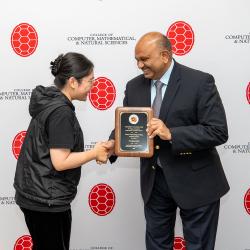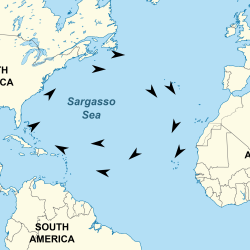The Power of BioFIRE’s Living-Learning Community
BioFIRE offers incoming students a community of faculty, staff and peers
A spirit of community drives the University of Maryland’s BioFIRE program. Housed on the sixth floor of Easton Hall on north campus, the BioFIRE living-learning program offers incoming students a home away from home with peers who share their interests.
Living-learning programs make the large campus feel smaller, allowing new students to join a built-in community when they enter their first year of college. Students in BioFIRE participate in the First-Year Innovation and Research Experience (FIRE) and pick focus areas (or streams) to concentrate on in the biological and chemical sciences. While they’re embedded in the three-semester FIRE program, students participate in faculty-mentored research experiences.
“In FIRE’s research environment, you learn how to pose questions, you learn how to design experiments, and you learn how to analyze and interpret data and share that new knowledge with the rest of the world,” said Kaci Thompson, assistant dean of science education initiatives for UMD’s College of Computer, Mathematical, and Natural Sciences and director of the BioFIRE program.
Senior biological sciences major Clarice Pamplona conducted her BioFIRE research with the Molecular Diagnostics stream. Her project focused on developing a screening tool for ovarian cancer by selecting an aptamer—a strand of DNA or RNA that can bind to a specific target—to bind to HE4, an ovarian cancer biomarker. For Pamplona, it was an invaluable research and learning experience.
“From fully immersing myself in research, I learned that the research of today will determine how I practice medicine in my future,” said Pamplona, who hopes to attend medical school after graduation next spring. “It is my responsibility to stay informed with the most up-to-date research, and I am excited to be a lifelong learner.”
Course-based research has been shown to increase the number of students who complete degrees in STEM, according to a study on the University of Texas’ Freshman Research Initiative (FRI). UMD’s FIRE program was modeled off FRI’s focus on engaging students in research their first year on campus.
UMD launched BioFIRE in 2015 with seed funding from a Howard Hughes Medical Institute grant that supported university-based efforts to increase the diversity of the scientific community. BioFIRE has since welcomed 354 students, about 80% of whom are first-generation college students, are from under-resourced neighborhoods, or are from racial and ethnic groups historically underrepresented in STEM.
To achieve its goal of retaining students majoring in biological or chemical sciences, BioFIRE provides a support network to help them navigate the challenges of pursuing a science degree. Of the 125 students who joined BioFIRE between 2015 and 2017, 82% completed STEM degrees, compared with 67% of students retained in STEM degrees nationally.
The program has grown since its inception, now accepting about 60 students each year, almost enough to fill an entire floor of Easton Hall. In addition to living in the same space, BioFIRE students take the same introductory courses in biology, chemistry and calculus.
“Sharing classes with my peers from the start of freshman year helped me foster relationships with people I might not have paid mind to in the hallways of Easton,” Pamplona said. “These are the people who support me in my educational and personal goals, who have opened my eyes to diverse walks of life and who empower me to overcome personal challenges.”
The community element BioFIRE provided made all the difference for Manuella Djomaleu (B.S. ’20, biological sciences) when she started her freshman year at UMD.
“As an anxious college student who was an immigrant, I had a lot of self-doubt about my ability to make it in college. BioFIRE provided me with solid ground—a safety net, a home on campus,” said Djomaleu, who was born and raised in Cameroon. “Knowing that I could walk into Symons Hall and go into Kaci’s office whenever I was having a bad day—that meant the world to me.”
Thompson and her team have made it a priority to build community for students as soon as they arrive on campus. BioFIRE does this by encouraging students to participate in program activities and events such as study groups, tutoring, field trips, scientific lectures and social gatherings. Even after Djomaleu completed the program, she stayed involved with BioFIRE as a resident assistant, tutor and ambassador to prospective students.
“I remember how meaningful it was to have someone be there for me, so I wanted to be present for other students,” Djomaleu said. “It’s really the people who make BioFIRE so special.”
Now in medical school at the University of California San Francisco, Djomaleu recognizes how BioFIRE prepared her for the educational challenges ahead. Conducting research, interacting with motivated peers and receiving guidance from BioFIRE mentors—each of these experiences solidified her interest in pursuing medical school.
“What I love about medicine is that you’re partnering with the patient to make them feel better,” Djomaleu said. “You’re building an environment for the person you’re talking to so they want to share that information.”
Djomaleu has always been interested in global health. With the vision of returning to Cameroon to serve, she plans to become a doctor so that she can give back to her community.








